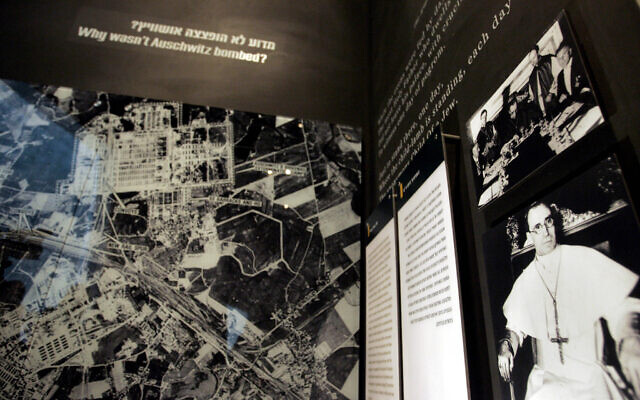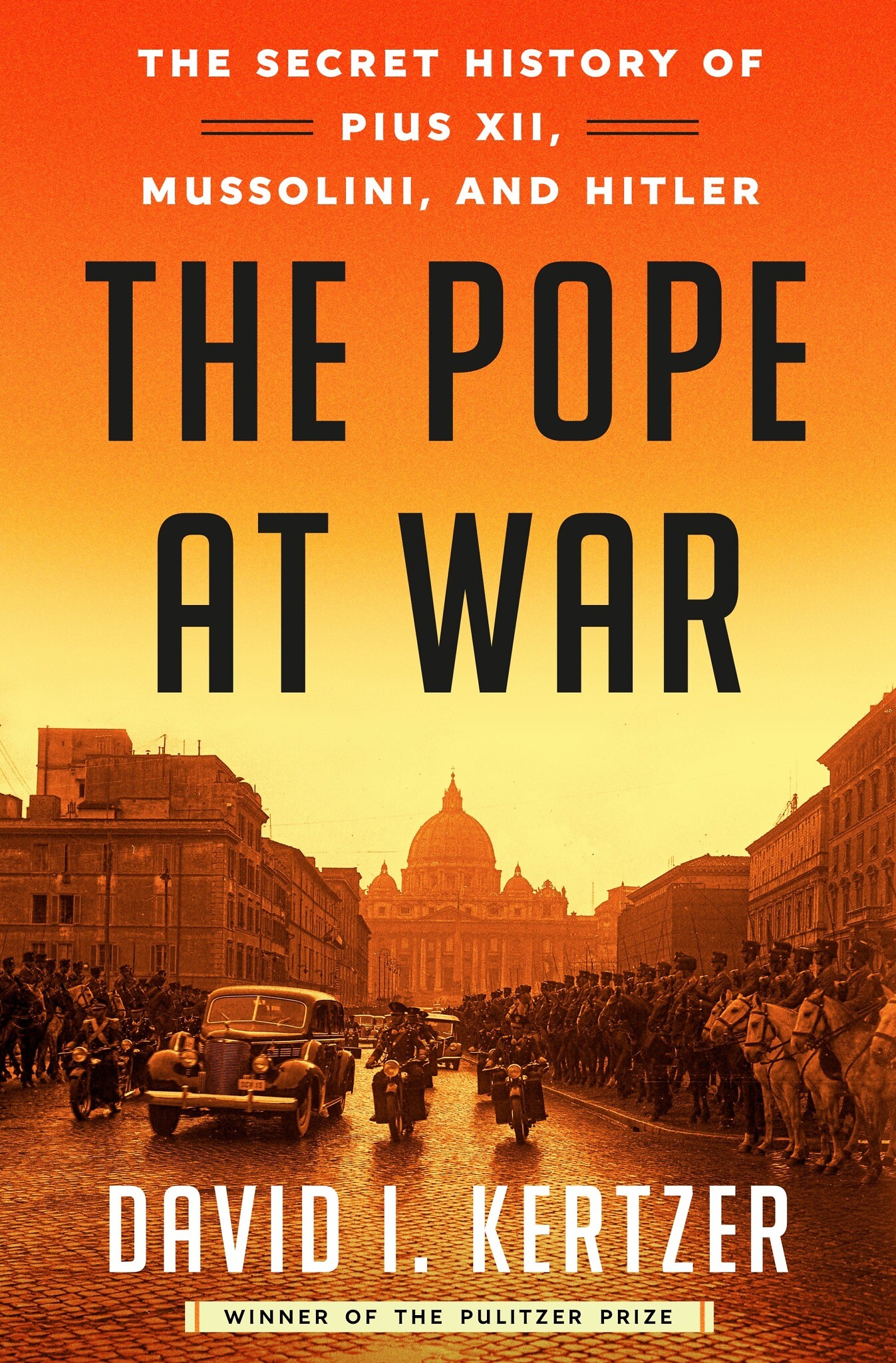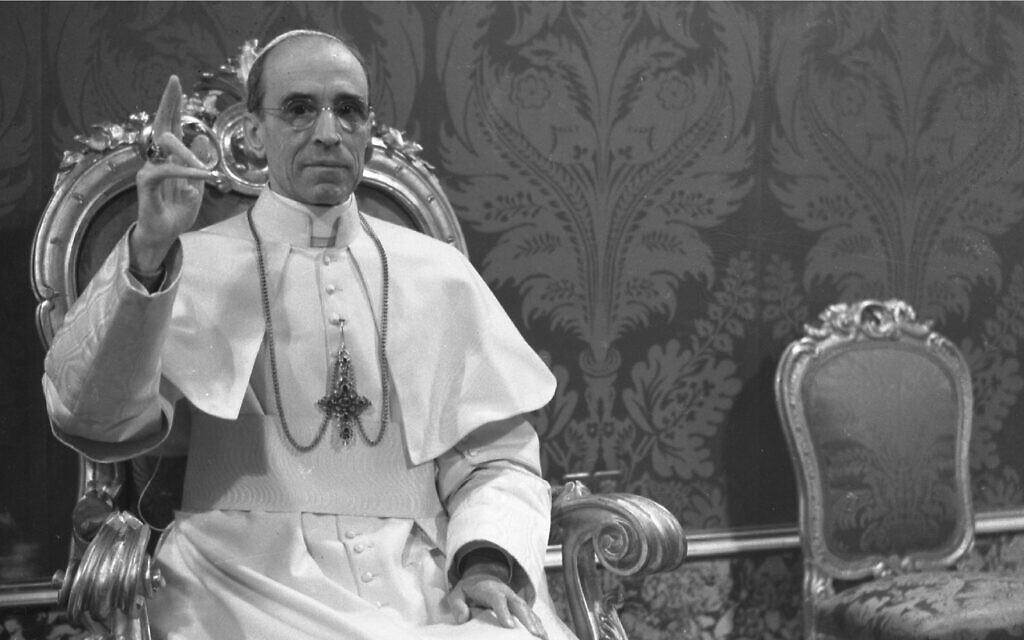The pope who put his church first — even with the Holocaust on his doorstep
Historian David Kertzer on how the hotly anticipated opening of the Vatican's wartime archives failed to absolve Pius XII over his failure to act
The moment had been decades in the making, so David Kertzer made sure he was up early. It was the day that the Vatican was finally to release papers that had been kept secret since the Second World War.
These were documents that would help us better understand Pius XII, the pope who was in office as genocide raged across Europe and has long been criticised for failing to do more to prevent it.
Yet for Kertzer, things were about to go very wrong.
Get The Jewish News Daily Edition by email and never miss our top stories Free Sign Up
The historian and Pulitzer-winning author has spent much of career researching politics, religion and the papacy, so he was there at the Vatican at 8.30am on the very date Pope Francis had announced the archives would open.
But it was 6 March 2020, just as a certain pandemic was taking hold in Europe.
“I worked there furiously for the first week when that Friday they announced, while I’m there, that they’re about to close them until further notice due to Covid. Italy was at the time the epicentre of Covid in Europe and then there was a lockdown.”
He had no choice but to return the United States. It would be another three months before he could resume work through a Rome-based colleague, Roberto Benedetti.
Their findings, which Kertzer draws out in his new book The Pope at War, describe a pontiff who was often indecisive and turned frequently to his senior aides — aides who advised him to stay out of the Holocaust, even while Jews were being rounded up on his doorstep.
The Vatican has long contended that Pius worked behind the scenes to save lives during the Holocaust, but the archives indicate those efforts were mostly to save Jews who had converted to Catholicism or who had at least one Catholic parent.
On 16 October 1943, as Jews across Italy faced mass deportation to Nazi death camps, a group of 1,260 was held by the SS at a military college building just outside the Vatican City.
The papers show that Pius wrangled over whether he should at least issue a diplomatic protest and publicly complain to the German ambassador. Ultimately, he did not.
What the Vatican did do was to comb the records of those 1,260 people to see if any had been baptised, or at least were married to confirmed Christians and had promised to raise their children that way. The exercise meant that by the time the group was taken to their deaths in a concentration camp, they numbered closer to 1,000.

Some have attempted to argue episodes like these showed the pontiff was a victim of circumstance, powerless to change the course of history, and did what little he could to confront a Nazi war machine.
But no, Kertzer says, Pius does bear a lot of responsibility for the Church’s wartime failures: “Who was it who was carrying out the Holocaust? They were people who thought they were Christian. I mean, they didn’t think they were pagans.
“And of those about half, roughly, were Roman Catholics and one can only imagine that in justifying how they were murdering little Jewish babies they were thinking in part of what the parish priest had told them about the dangers of Jews seeking world domination.”
Given these perceptions it is perhaps not surprising, he says, that antisemitism permeated the church in Rome during the war, although it is disappointing that the Vatican has failed since then to come to terms with what happened.
But he adds that some national Catholic churches have begun to admit this part of their history. And it is because of the current pontiff, Francis, that scholars have been able to go through Pius’s papers at all.

Last week Dani Dayan, the chairman of Israel’s Holocaust memorial Yad Vashem, recounted how he met the pope and “thanked him for opening the archives of the Vatican of the relevant period of the Holocaust for our researchers. He said very clearly that to open the archives is to make justice.”
So what is Kertzer’s verdict on Pope Pius — was he an antisemite?
“Pius XII was part of an environment in which antisemitism was common and he partook in that. He didn’t have particularly great experience dealing with Jews, [although] he met some.
“I don’t believe it was antisemitism per se that’s the main explanation for silence during the Holocaust; I think it was his priority for protecting the institutional church as he saw it.
“But, certainly, he was part of an environment in which there were many negative views about Jews.”
Oxford University Press has not yet announced a UK publication date for David Kertzer’s ‘The Pope at War’, but the US edition — which was published by Random House last week — is widely available from British retailers online

Thank you for helping to make Jewish News the leading source of news and opinion for the UK Jewish community. Today we're asking for your invaluable help to continue putting our community first in everything we do.
For as little as £5 a month you can help sustain the vital work we do in celebrating and standing up for Jewish life in Britain.
Jewish News holds our community together and keeps us connected. Like a synagogue, it’s where people turn to feel part of something bigger. It also proudly shows the rest of Britain the vibrancy and rich culture of modern Jewish life.
You can make a quick and easy one-off or monthly contribution of £5, £10, £20 or any other sum you’re comfortable with.
100% of your donation will help us continue celebrating our community, in all its dynamic diversity...
Engaging
Being a community platform means so much more than producing a newspaper and website. One of our proudest roles is media partnering with our invaluable charities to amplify the outstanding work they do to help us all.
Celebrating
There’s no shortage of oys in the world but Jewish News takes every opportunity to celebrate the joys too, through projects like Night of Heroes, 40 Under 40 and other compelling countdowns that make the community kvell with pride.
Pioneering
In the first collaboration between media outlets from different faiths, Jewish News worked with British Muslim TV and Church Times to produce a list of young activists leading the way on interfaith understanding.
Campaigning
Royal Mail issued a stamp honouring Holocaust hero Sir Nicholas Winton after a Jewish News campaign attracted more than 100,000 backers. Jewish Newsalso produces special editions of the paper highlighting pressing issues including mental health and Holocaust remembrance.
Easy access
In an age when news is readily accessible, Jewish News provides high-quality content free online and offline, removing any financial barriers to connecting people.
Voice of our community to wider society
The Jewish News team regularly appears on TV, radio and on the pages of the national press to comment on stories about the Jewish community. Easy access to the paper on the streets of London also means Jewish News provides an invaluable window into the community for the country at large.
We hope you agree all this is worth preserving.
-
By Laurent Vaughan - Senior Associate (Bishop & Sewell Solicitors)
-
By Laurent Vaughan - Senior Associate (Bishop & Sewell Solicitors)
-
By Laurent Vaughan - Senior Associate (Bishop & Sewell Solicitors)
-
By Laurent Vaughan - Senior Associate (Bishop & Sewell Solicitors)






















